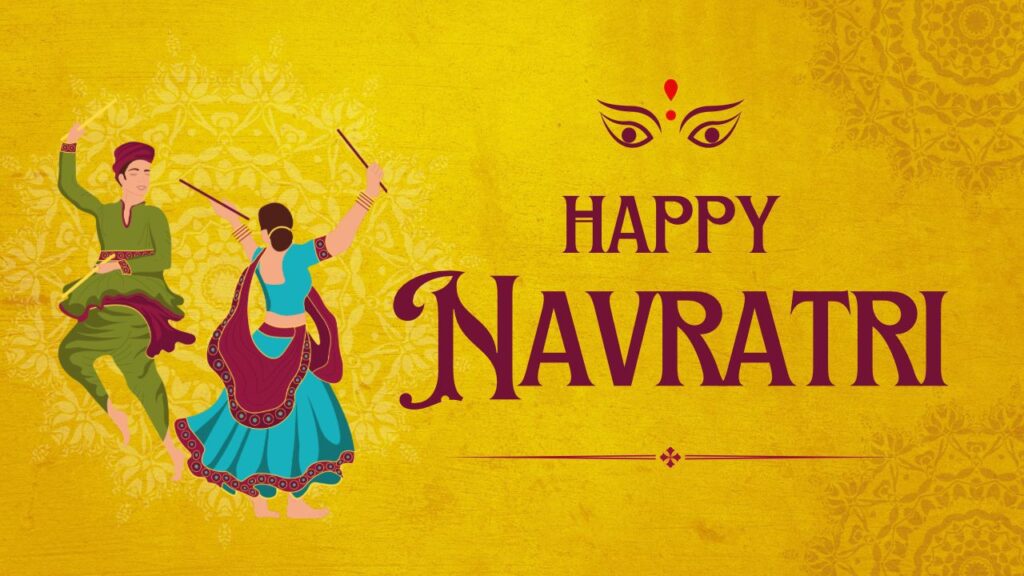Chaitra Navratri, also known as Vasant Navratri, commences on the first day of the bright fortnight of the Hindu lunar month of Chaitra (March/April). This year, it began on April 9, 2024, and culminated on April 17th with the celebration of Rama Navami. Spanning nine days, this sacred festival honors the nine forms of Goddess Durga, the embodiment of Shakti or divine feminine power.
Significance of Chaitra Navratri
Chaitra Navratri transcends a mere celebration; it’s a spiritual journey inward. It signifies the triumph of good over evil, not just in the external world, but also within ourselves. According to mythology, the nine days represent the nine battles fought between Goddess Durga and the demon king Mahishasura, who ultimately resulted in Durga’s victory. These battles symbolize our internal struggles between positivity and negativity, light and darkness. Each day of Navratri venerates a distinct manifestation of Durga, each with unique attributes, guiding us on our path to spiritual awakening.
The Nine Forms of Durga Worshipped During Navratri
Day 1: Shailaputri (Daughter of the Mountains) – symbolizing unshakeable inner strength and determination on the spiritual path.
Day 2: Brahmacharini (Practitioner of Austerity) – representing the mental strength and perseverance required for self-discipline and spiritual growth.
Day 3: Chandraghanta (Bell-Throated) – signifying the awakening of inner wisdom and the dispelling of ignorance through spiritual practices.
Day 4: Kushmanda (Cosmic Pumpkin) – symbolizing good health and well-being, both physical and spiritual, achieved through a balanced and sattvic way of life.
Day 5: Skandamata (Mother of Skanda) – representing the nurturing aspect of the divine feminine, fostering devotion and love for the divine.
Day 6: Katyayani (Warrior Goddess) – embodying the courage and strength to overcome negativity and negativity within ourselves.
Day 7: Kalaratri (Dark Night) – signifying the destruction of ignorance, negativity, and ego that veil our true nature.
Day 8: Mahagauri (Radiant White One) – representing purity, serenity, and peace attained through spiritual practices and self-reflection.
Day 9: Siddhidatri (Bestower of Siddhis) – symbolizing the perfection and attainment of spiritual goals, not for material gain, but for liberation and enlightenment.
Navratri in the Age of Social Media
In the age of social media, the way people celebrate Navratri has evolved. Platforms like Instagram and Pinterest are flooded with vibrant images of home altars, beautiful ethnic wear, and mouthwatering vegetarian delicacies. People share inspirational quotes and messages about the significance of the festival, making it a truly inclusive and global phenomenon.
Navratri Celebrations across India
Navratri is a nine-day Hindu festival that celebrates the victory of good over evil. It is one of the most important festivals in India and is celebrated with great devotion and enthusiasm.
Navratri is celebrated in different ways in different parts of India. In some regions, people fast for nine days, while in others, they feast. Some people worship the goddess Durga at home, while others visit temples.
Here are some of the ways Navratri is celebrated across India:
In Gujarat, Navratri is celebrated with the Garba dance. Garba is a folk dance that is performed by men and women in a circle around a garba pot. The garba pot is a symbol of the womb and represents the creative power of the goddess Durga.
In West Bengal, Navratri is celebrated with Durga Puja. Durga Puja is a ten-day festival that culminates with the immersion of the goddess Durga’s idol in water.
In Tamil Nadu, Navratri is celebrated with Kolu. Kolu is an arrangement of dolls and figurines that are displayed in the home. The dolls and figurines represent the different forms of the goddess Durga.
In Andhra Pradesh and Telangana, Navratri is celebrated with Ugadi. Ugadi is a new year festival that marks the beginning of the Telugu calendar.
Navratri is a time for celebration, devotion, and spiritual growth. It is a time to connect with the divine feminine and to reflect on the inner strength and power that we all possess.
Here are some additional details about how Navratri is celebrated in different parts of India:
Gudi Padwa
Gudi Padwa is the Marathi New Year, which is celebrated on the first day of Chaitra Navratri. It is a time for new beginnings and celebrations. People clean their homes, buy new clothes, and prepare special foods. They also visit temples and offer prayers to the goddess Durga.
Ugadi
Ugadi is the New Year festival in Andhra Pradesh and Telangana. It is celebrated on the first day of Chaitra Navratri. People clean their homes, buy new clothes, and prepare special foods. They also visit temples and offer prayers to the goddess Durga.
Jyotish Purnima
Jyotish Purnima is the full moon day that falls during Chaitra Navratri. It is a day to celebrate the goddess Lakshmi, the goddess of wealth and prosperity. People perform special pujas and rituals to invoke Lakshmi’s blessings.
Chaitra Navratri. People clean their homes, buy new clothes, and prepare special foods. They also visit temples and offer prayers to the goddess Durga.
Navratri for Everyone
While the core traditions and rituals remain significant, the modern interpretation of Navratri is more inclusive. It’s a celebration of women’s empowerment, a time to reflect on inner strength and conquer personal demons. Anyone can participate in the spirit of Navratri by practicing self-care, meditation, or simply wearing their favorite color to embrace the festive energy.
Chaitra Navratri is a multi-faceted spiritual journey that transcends religious boundaries. It’s a time to connect with the divine feminine, awaken our inner strength, and embark on a path of self-discovery and enlightenment. Let this be a time for inner reflection, spiritual growth, and the celebration of the divine force that resides within us all.
Check this Out: Emma Stone’s Golden Globe (2024) Win for “Poor Things”
“Unlocking Financial Success: Your Path to Prosperity Begins Here! Dive into our latest blog for valuable insights, expert tips, and strategies that can transform your financial journey. Click here to embark on a wealth-building adventure: [financepedia]

